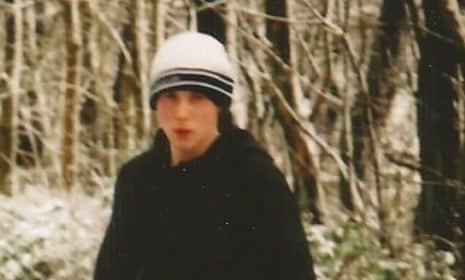My first time at rock bottom came early. I was an infant when my mum fled with me and my brother to a refuge, to escape violence at home. This period of fear was brief, but it left an indelible mark. The chaos and trauma from these years manifested in my flailing limbs during desperate temper tantrums, in which my mum would hear every epithet I could think of while her whole bookcase crashed down our stairs.
For as long as I can remember, I have been told that there is something wrong with me, that I am different, naughty, need help; and that chemicals would make me better, make me good. Attention deficit hyperactivity disorder is the medicalised term for my condition, which proved incompatible with mainstream schools, where pirouetting in maths class like a drunk gymnast was not appreciated.
Academia and I went together like shards of glass on toast. My maths teachers assumed I had dyscalculia, my English teachers dyslexia. One teacher – let’s call him Mr X – remarked that my grasp of grammar was “limp-wristed in the extreme”. (Mr X, if you are reading this, I started this sentence with a bracket, just for you – and now I am not going to close it.
I thought getting expelled from every mainstream school was my rock bottom, but I continued to fall. I was thrown out of my foster home and went to a children’s home, where I got my first taste of a police cell. A few kids had decided we should disassemble our wardrobes and launch them down the stairs because the staff, trying to prise us away from the telly after curfew, had turned off the electricity.
Kids’ homes in the 90s felt more like prepping units for prison. Bad behaviour meant being put “on basics”: no TV, stereo, sweets or pocket money. But those threats held no sway that evening. The staff, feeling they had lost control, dialled 999. We were twisted up and locked up. But our mischief nights only escalated. I visited the cells a few more times, earning a criminal record before I was 16. It is little surprise that children in care are far more likely to become criminalised than other children. But I still had further to fall.
I spent most of my early adulthood unemployed. I was homeless before I turned 21. The library brought me a reprieve: I became an autodidact and eventually encountered real didacts when I made it to university at 23.
Finally, I thought, I had escaped the turmoil of my past, but it caught up with me. I had lived on my own since I was 17, but I had never learned – or been taught – to look after myself properly.
Over the three years at university, I racked up thousands of pounds of arrears, gained tens of pounds in weight and became a drink-sodden recluse. It ended with me graduating while living in an Emmaus community for homeless people.
I have thought long and hard about how I bounced back from all this. If I am honest, I don’t know. In a way, it doesn’t matter. What matters more is that I am a walking, talking anomaly. How many people like me write for national newspapers, or write books? We all have a lowest point, but many people can latch on to loved ones and resurface. Others fall too far to return undamaged. Almost everyone I lived with through the care system has been in and out of prison, strung out, off the map; some are dead.
We should judge a civilised society by how it treats its most vulnerable citizens – and the British state is an appalling parent. The children in its charge are more likely to be criminalised and exploited than other children; teenage pregnancies occur at a higher rate, as do substance dependency and mental illness. Then, when the state’s kids reach 18, they are expected to fend for themselves entirely. It should be no surprise that so many end up destitute, as I did.
I could write about how picking up a pen and expressing myself gave me purpose – and it did. But, in reality, I was just lucky. And it shouldn’t be good fortune when a looked-after child makes it in our society. The kids I grew up with were damaged by difficult lives, but they were sharp, resilient and funny. Who knows what they could have become if the government had taken its parental role seriously? If we want the reason looked-after children can thrive to be down to more than chance, we must try harder – and care more. Only then will more people with stories like mine make it back from their rock bottom.
The headline of this article was amended on 28 December 2021 because an earlier version wrongly stated that the writer had spent time in jail.
